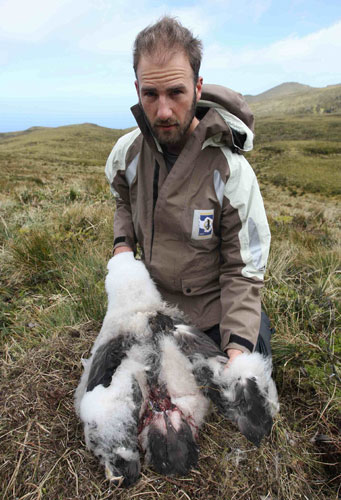The David and Lucile Packard Foundation is a private foundation that provides grants to not-for-profit organizations. It was created in 1964 by David Packard and his wife Lucile Salter Packard.
The conservation of marine birds is part of the Packard Foundation’s broader commitment to restore the health and productivity of oceans and coasts, on which all life depends. The Foundation invested US $22.7 million from 2006 to 2012 into marine birds, of which US$3.6 million went to bycatch reduction projects and US$13.6 million for island restoration projects. “Bycatch reduction projects have reduced global annual seabird bycatch by at least 73,500 birds, mostly albatrosses and petrels.”
The Packard Foundation's Marine Birds programme has this month released its updated strategy (click here) with an intended annual grant budget of US$2.9 million over the next five years.
The Foundation informs ACAP: “After reviewing our third-party evaluation and receiving feedback from many of you, our strategy continues to build on three priority areas from the last five years: invasive species eradication on important seabird breeding islands; reduction of seabird bycatch; protection of important shorebird habitat along the Pacific Flyway. For each initiative, we hope to build upon the progress we have made together and continue to refine our objectives as we learn new information.”
The Foundation will continue to support high return on investing in invasive species eradications on important seabird breeding islands.

Tristan Albatrosses will be more secure once Goygh Island's mice are eradicated
Photograph by Peter Ryan
“We will build on progress made to reduce seabird bycatch by supporting regulatory improvements and fishery gear modifications. Our support will focus on advocacy for improved fisheries monitoring and reporting as well as outreach around proven bycatch mitigation methods. We continue to prioritize interventions in areas with high rates of bycatch of threatened and endangered seabirds.”
Click here to access the 30-page Marine Birds Strategic Plan October 2013.
John Cooper, ACAP Information Officer, 22 October 2013

 English
English  Français
Français  Español
Español